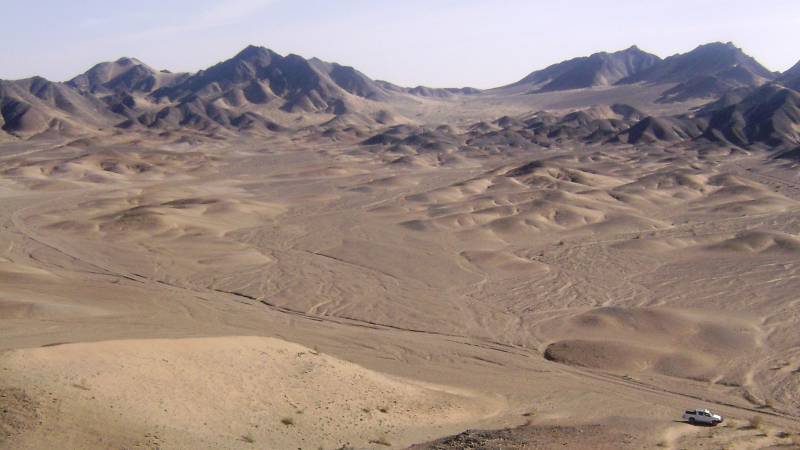
Located in Chagai district, Balochistan’s largest district by area, Reko Diq is situated near the borders of Afghanistan and Iran. The region consists of arid and semi-arid lands, marked by vast deserts, rugged mountain ranges, and sparse vegetation, including the Raskoh and Chagai Hills. With a low population density, the area is home to a majority Baloch population, alongside smaller ethnic communities. Chagai faces numerous developmental challenges, including inadequate infrastructure, limited access to education, healthcare, and clean water.
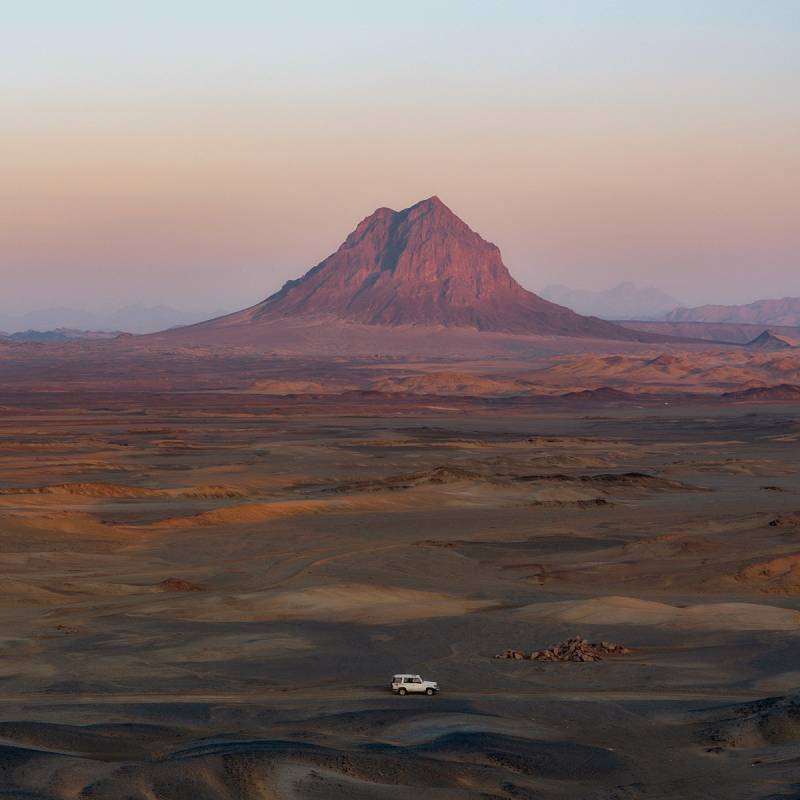
The Reko Diq project reached a key milestone in December 2022, marking significant progress toward developing a long-life, world-class mine. Barrick is currently updating its feasibility studies from 2010 and 2011, with initial production planned for 2028.
Barrick Gold Corporation holds a 50% stake in the Reko Diq copper and gold project, one of the world's largest undeveloped mining sites. The remaining ownership is split between Pakistan’s federal state-owned enterprises (25%) and the Balochistan government (25%), with the latter’s share divided into a fully funded 15% and a 10% stake acquired free of charge.
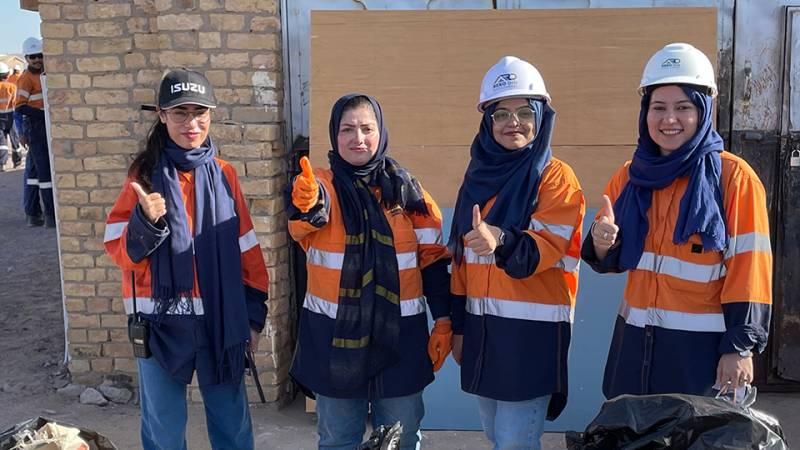
According to the company, 77% of Reko Diq Mining Company (RDMC) employees are from Balochistan. The project has provided education access to 80% of the local population under 10 years old, supplied clean and safe water to 309 households, and invested $2.5 million in community initiatives.
In 2022, an agreement was reached between the government of Balochistan and Barrick Gold Corporation to restart the Reko Diq project. The then Finance Minister of Pakistan, Shaukat Tareen, announced that the Canadian company had pledged a $10 billion investment, along with the elimination of an $11 billion fine. He projected that the project would generate 8,000 jobs in Balochistan and over $100 billion in revenue through taxes for the federal and provincial governments.
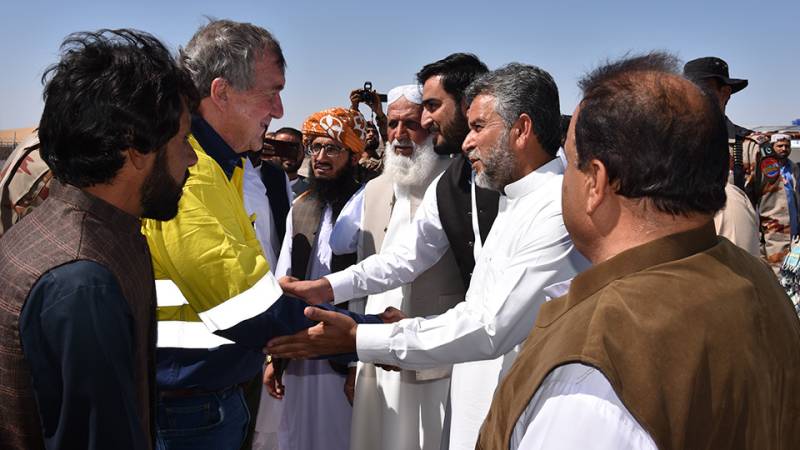
Former Balochistan Finance Secretary Mahfuz Ali Khan recounted that the province initially signed an agreement with the American company Broken Hills Properties Minerals in 1993 to explore Reko Diq’s mineral wealth. This venture, known as the Chagai Hills Exploration Joint Venture Agreement, granted the Balochistan government a 25% share in profits.
Under contractual provisions, Broken Hills Properties established a subsidiary, Mancor, which later transferred its shares to the Australian firm Tethyan Copper Company (TCC). Exploration confirmed the economic viability of Reko Diq’s deposits, prompting a Canadian-Chilean consortium to acquire TCC’s shares.
In 2013, TCC’s bid for a mining license was rejected, leading the company to file disputes with international arbitration forums, including the International Centre for Settlement of Investment Disputes (ICSID).
According to information from the Balochistan Department of Minerals, the provincial government spent over Rs 5 billion on legal proceedings related to these disputes over seven years. A Supreme Court bench led by former Chief Justice Iftikhar Muhammad Chaudhry later ruled the agreement with TCC null and void, citing legal violations.
Following the verdict, TCC sought a mining license from the Balochistan government, which set conditions requiring the company to refine extracted minerals within the province and increase Balochistan’s share in the project. These measures were introduced in response to the minimal benefits yielded from the Saindak project.
Due to the company’s failure to meet these conditions and non-compliance with the Balochistan Mining Department Rules 2002, the Mineral Licensing Authority denied TCC a mining license in November 2011. The company appealed the decision to the provincial Secretary of Mines and Minerals, who upheld the rejection.
In May 2022, Barrick Gold Corporation paid Rs 710 million to the Balochistan government as an advance royalty for the project. Provincial finance department officials confirmed the payment as part of the updated agreement between the company and the government.
Speaking about the project’s impact, Barrick CEO Mark Bristow emphasised its unprecedented scale in Pakistan. “No project like Reko Diq has been done before in the country. We have been working here since 2019, and this project will create new history in the mining sector,” he stated.
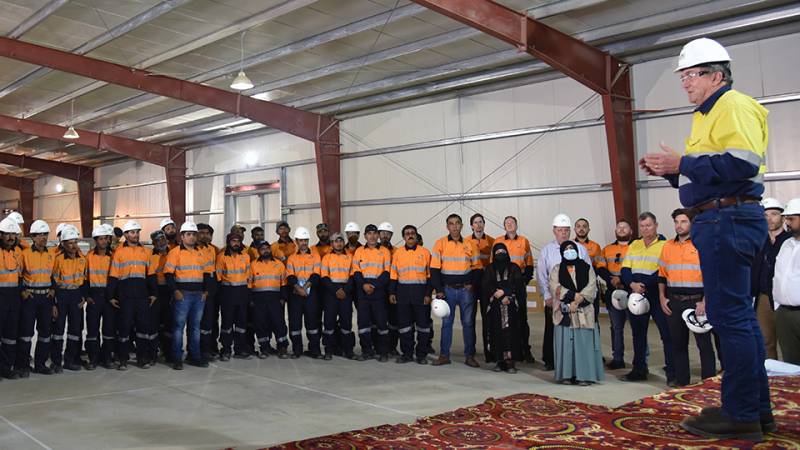
Bristow reaffirmed that Balochistan will retain its 25% share as per the agreement, in addition to benefiting from taxes and royalties. He expressed confidence that the project could sustain operations for a century. “The people of Balochistan will soon start seeing the benefits of this project. We are also initiating new social welfare programs in the province,” he added.
Regarding future collaborations, Bristow disclosed ongoing discussions to expand the partnership, potentially involving Saudi Arabia. He cited historical examples of economic transformation, comparing Balochistan’s current situation to Chile’s past. “Eighty years ago, Chile was politically and economically unstable. Today, it is the world’s largest copper producer,” he noted.
He highlighted Barrick’s commitment to using the best global expertise in engineering and design to ensure the project's success. “We are making every effort to begin our first production in 2028,” he said.
Bristow also underscored the company’s priority of involving local talent in the project. “Our goal is for all the people working on this project to be Pakistanis. We want Balochistan’s workforce to be at the forefront, but this will only be possible if we invest in people,” he emphasised.
Experts argue that the key issue is not just the low price at which the financially struggling Pakistani government sold shares of the Reko Diq project. They contend that real benefits will only be realised if the contract with Barrick Gold is transparent and includes strict checks and balances.
The government has repeatedly portrayed the project as a game-changer for Pakistan and Balochistan. However, economists warn that without a system ensuring full transparency of revenues, any benefits will be short-lived, while long-term gains will not reach the people.
Renowned economist Qaiser Bengali expressed concerns over the lack of transparency, stating, “I can only hope this project does not suffer the same fate as Saindak, which has not contributed a single rupee to Balochistan to date.”
Pakistan has approved the sale of 15% of Reko Diq’s shares to Saudi Arabia for $540 million under an intergovernmental agreement. Some experts believe this valuation is significantly lower than the project’s actual worth.
Bengali suggests that Pakistan should push Barrick Gold to establish initial processing units within the country instead of exporting raw minerals. He also recommends constructing a railway line from Reko Diq to Gwadar Port to boost the region’s economic potential and enhance the port’s functionality.

